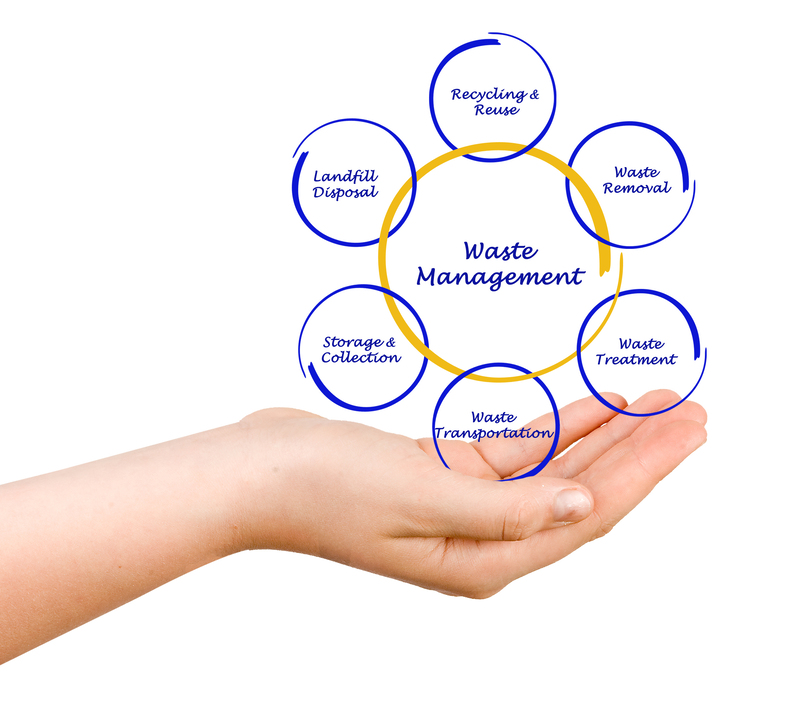Effective Ways to Shrink Your Plastic Footprint
Reducing your reliance on plastic is now more crucial than ever. As many turn their attention to sustainable living, finding effective ways to shrink your plastic footprint should be a top priority for environmentally conscious individuals. This comprehensive guide explores actionable methods to minimize plastic usage, offering practical, sustainable alternatives that can be adopted in daily life. By understanding the impacts and integrating these strategies, you'll be taking significant steps toward a healthier planet.
Understanding Your Plastic Footprint
Your plastic footprint is the total amount of plastic you consume and discard, directly and indirectly. This includes single-use packaging, household items, and even clothing made from synthetic fibers. Plastic pollution affects marine life, leaches chemicals into food and water, and contributes to global environmental issues.
- Only 9% of plastic ever produced has been recycled.
- Plastic waste takes hundreds of years to break down, often fragmenting into microplastics that persist in the environment.
- Each person generates an estimated 50 kg of plastic waste annually.
Recognizing your individual impact is the first step to reduce your plastic footprint and promote sustainability.

Simple Habits to Reduce Plastic Use at Home
The journey to minimizing your plastic waste begins at home. Making deliberate, small changes can collectively create a significant impact. Here are some effective ways to minimize your plastic footprint in your everyday lifestyle:
1. Opt for Reusable Alternatives
- Switch to cloth or canvas shopping bags instead of single-use plastic bags. Keep extra bags in your car or near the door.
- Invest in stainless steel, bamboo, or glass straws rather than plastic ones. Many cafes and restaurants now support bringing your own.
- Use reusable water bottles and coffee cups. BPA-free glass or metal bottles are safer and more environmentally friendly.
- Choose beeswax wraps or silicone bags in place of plastic wrap for storing food.
2. Buy in Bulk and Choose Package-Free Products
- Bulk stores allow you to use your own containers, eliminating unnecessary packaging.
- Farmer's markets often sell produce without plastic packaging and support local growers.
- When in supermarkets, seek out products sold in cardboard, glass, or metal packaging.
3. Rethink Takeout and Delivery
- Bring your own containers when ordering takeaway or eating out.
- Politely decline plastic cutlery or request compostable alternatives.
- Support restaurants and cafes that use environmentally friendly packaging.
Switch to Sustainable Household Essentials
One of the most powerful ways to shrink your plastic footprint is by replacing everyday household products with plastic-free options. Here's how you can make sustainable swaps:
Cleaning Products
- Use bar soaps and solid detergents instead of liquid cleaners in plastic bottles.
- Mix your own cleaning solutions using vinegar, baking soda, and essential oils. Store them in glass spray bottles.
- Choose cellulose sponges and cleaning brushes with wooden or metal handles.
Personal Care Items
- Replace plastic toothbrushes with bamboo ones.
- Use shampoo and conditioner bars instead of bottled products.
- Choose refillable deodorants, lotions, and makeup packaged in tin or glass.
Laundry Solutions
- Opt for concentrated detergents and refill stations if available.
- Switch to dryer balls instead of single-use dryer sheets.
- Avoid synthetic fabrics or use a microplastic filter (like a Guppyfriend bag) to reduce fiber shedding during washing.
Practice Conscious Shopping
When you shop, your choices have a profound effect on the demand for plastic. Becoming a more informed and discerning shopper is an effective way to reduce your plastic usage.
Read Labels Carefully
- Look for terms like "biodegradable," "compostable," or "plastic-free."
- Support brands with transparent sustainability commitments and eco-friendly packaging.
Buy in Bulk or Concentrated Forms
- Larger packages use less plastic per unit of product.
- Refillable stores help eliminate the need for new packaging altogether.
Support Circular Economy Brands
- Purchase products from companies that offer take-back and recycling programs.
- Choose brands committed to using recycled plastics or developing ocean-friendly alternatives.
On-the-Go Plastic Reduction Strategies
Living sustainably doesn't have to stop at your doorstep. There are numerous practical methods to shrink your plastic footprint outside the home:
- Carry your own reusable straw, cutlery, and container set in your bag or backpack.
- Avoid cosmetics with plastic microbeads, which are prevalent in many facial scrubs and toothpastes.
- Pack snacks and lunches in durable, non-plastic containers or wraps.
- Refill your drinks at water fountains or cafes instead of buying bottled beverages.
Advanced Ways to Minimize Your Plastic Footprint
Ready to take your commitment to the next level? These advanced methods will help you make an even greater impact.
Composting and Waste Management
- Compost food scraps and biodegradable materials to limit landfill waste and plastic trash bags.
- Use compostable or biodegradable bin liners, or line your bin with newspaper.
Host Low-Plastic Events and Gatherings
- Encourage guests to bring reusable cups, plates, and utensils (setting the trend for low-waste socializing).
- Decorate with fabric banners, paper lanterns, and other reusable decor.
- Offer drinks in pitchers instead of single-use bottles or cans.
Advocate for Policy Change
- Support regulations banning single-use plastics and encouraging recycling.
- Participate in community clean-up events and local zero-waste initiatives.
- Contact local representatives about banning unnecessary plastic packaging.
Educate and Influence Others
The impact of shrinking your plastic footprint multiplies when you inspire others. Here's how to spread the word:
- Share your journey and tips on social media, blogs, or in your community group.
- Host educational workshops at schools, workplaces, or community centers.
- Encourage others to join plastic reduction challenges or pledge drives.
Dealing with Unavoidable Plastics
Despite your best efforts, completely eliminating plastic can be challenging. However, you can still reduce your overall plastic footprint by handling unavoidable plastics responsibly.
- Recycle items according to local regulations - improper recycling contaminates other recyclables.
- Upcycle containers for storage, crafts, or gardening projects.
- Collect soft plastics separately and drop them off at specialized recycling points (many grocery stores now offer this service).

Why Reducing Your Plastic Footprint Matters
Every small choice contributes to a larger environmental impact. Here's why it's vital to adopt effective strategies for reducing your plastic use:
- Protects wildlife and ecosystems by reducing litter and microplastic pollution.
- Supports the rise of a circular economy and sustainable innovation.
- Minimizes personal exposure to harmful chemicals that leach from plastic into food, air, and water.
- Demonstrates responsible consumer behavior, influencing companies to adopt better practices.
Conclusion: Start Shrinking Your Plastic Footprint Today
Overhauling your entire lifestyle overnight isn't necessary, but every small change adds up over time. Integrating these effective ways to shrink your plastic footprint will not only benefit the environment, but also encourage others to follow your example. Choose a few actionable steps from this guide--and make them new habits. Together, these collective efforts can usher in a more sustainable, plastic-free future for everyone.
Remember: Your every action counts in the global movement to reduce plastic waste. Start today--your planet will thank you!